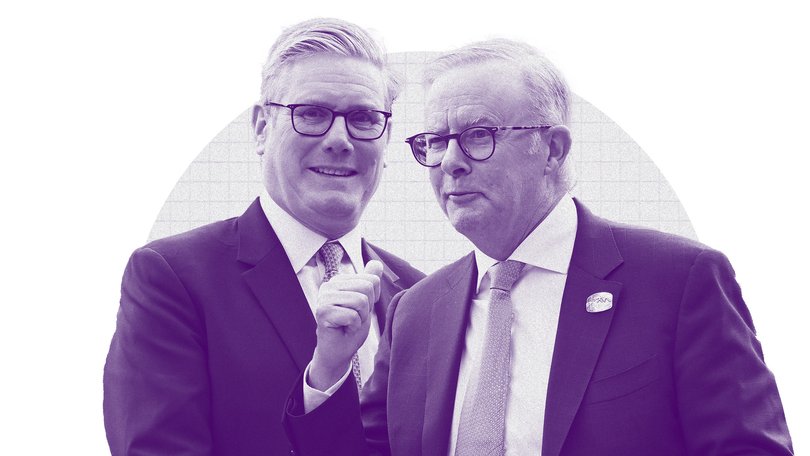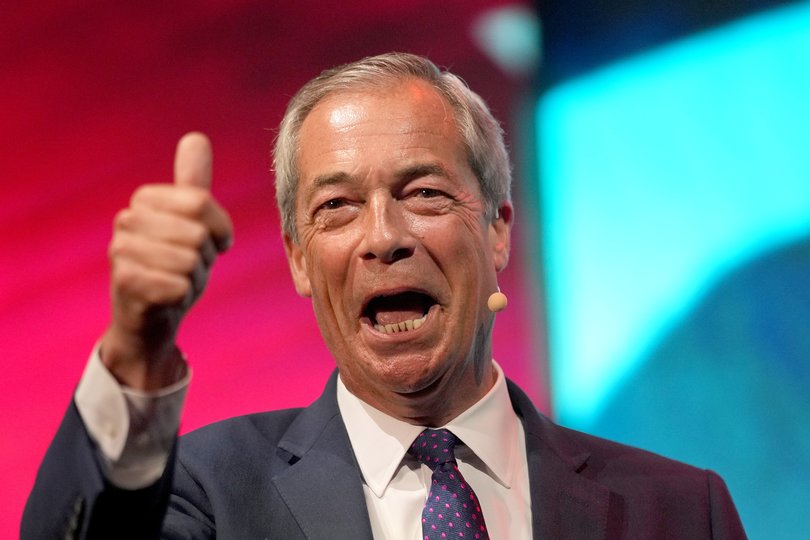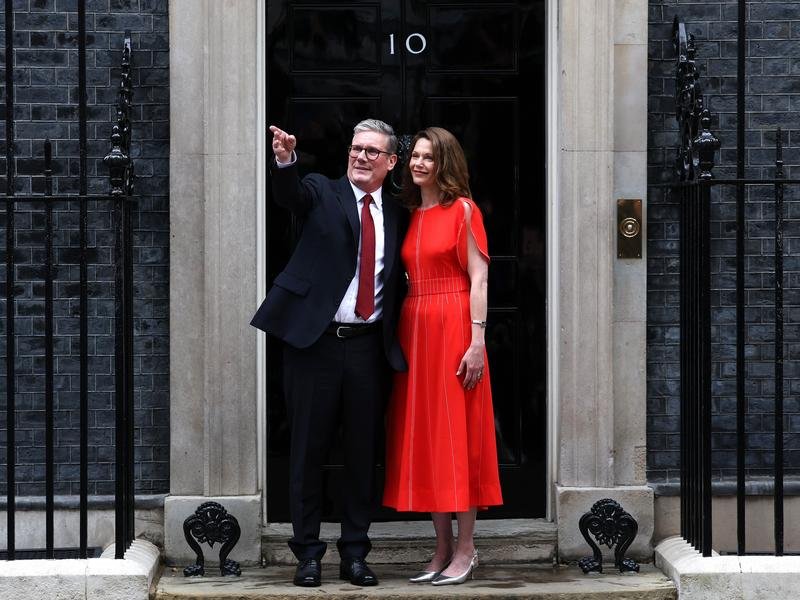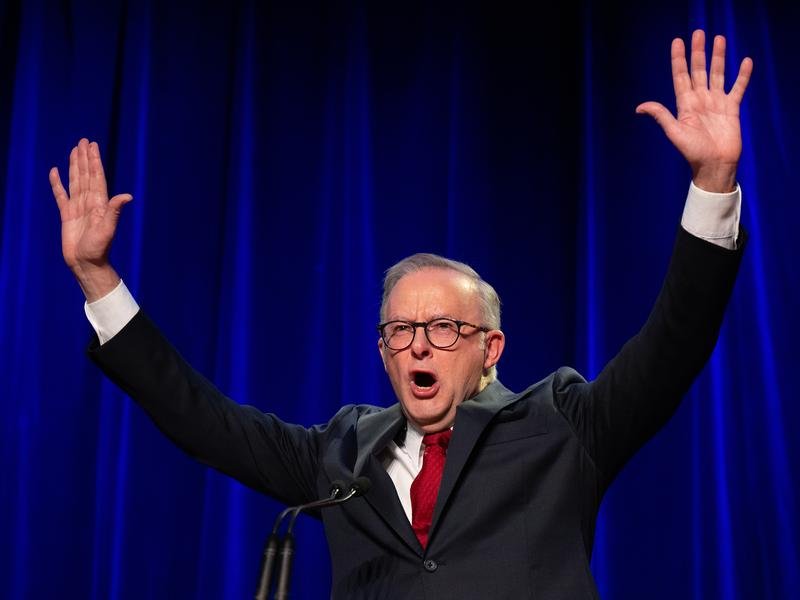CAMERON MILNER: Sir Keir Starmer’s political nosedive must serve as a warning for Anthony Albanese
CAMERON MILNER: Promises for change and wishful thinking did nothing for Sir Keir Starmer, and will certainly do nothing for Anthony Albanese.

Sir Keir Starmer, just like our own Prime Minister, was elected with a crushing majority, giving rise to hopes for back-to-back election victories for UK Labour.
Then came a personal expenses scandal for Starmer, which trashed his credibility. The UK economy and Budget urgently need both tax and spending reform, yet a backbench revolt saw the very capable Chancellor Rachel Reeves reduced to tears in the Commons.
Lastly, Starmer is back fighting the perennial issue of asylum seekers in the UK.
Sign up to The Nightly's newsletters.
Get the first look at the digital newspaper, curated daily stories and breaking headlines delivered to your inbox.
By continuing you agree to our Terms and Privacy Policy.Despite all the promises of change — little more than wishful thinking from Starmer — there are hundreds of motels and hotels booked out for asylum seekers at UK taxpayers’ expense. The backlog of processing has made a bad political situation worse.
Enter the Brexiteer, Reform Party founder and the affable bloke with a fag in his hand and a half-drunk pint, Nigel Farage, to declare the UK is being invaded, and that rather than being asylum seekers, these newcomers, predominantly from Eritrea and Afghanistan, are in fact illegal immigrants.

Suddenly, the third rail of UK politics — race and anti-immigration tensions — are a nightly news story, with regular protests outside of asylum motels.
Starmer has tweeted that about 50 people are being processed and returned to France, while Farage is committing to “five plane loads a day” under his processing policy. Starmer can’t win that race to the bottom.
Labour was already looking tarnished after Starmer’s freebie scandal, having completely lost control of the economic narrative. Now, a party with just six MPs out of 650 is leading them in every major poll and forcing the PM to follow their agenda.
Where are the Conservatives, the traditional party of alternative government? A distant third and crying foul that Farage has stolen their ideas, hardly a recipe for relevancy.
The broader lesson, though, is just how quickly politics turns: one moment bouquets, the next brick bats.
Starmer is struggling in large part because he followed an Albanese-esque small target strategy, so he was given an overwhelming majority to do actually very little.
It’s why an issue such as asylum seekers has renewed its potency. Much like Reform itself, it had been latent until suddenly voters determined their cause was just the political tonic.
Starmer let a vacuum form in the absence of an expansive manifesto.
The UK polls are all consistently in the same place. Labour’s support has almost halved, from 25 per cent to 20 per cent on average. The Conservatives are now locked into third and Reform’s support has more than doubled from 14 per cent to 30 per cent. The Greens and Lib Dems are static, showing Reform’s support is coming from the other two major parties.

The lesson for Australian politicians, only a few months into this term, is just how quickly voters can change their mind when, in their view, they didn’t give a mandate to the government in the first place.
Both Albanese and Starmer claimed victory on platforms built around not being the other guy.
But not being the other guy doesn’t make voters believe you are their guy.
The Albanese and Starmer approach reminds me of the quote attributed to French Revolutionary leader Alexandre-Auguste Ledru-Rollin: “How many were there? Which way did they go? I must know as I am their leader”.
Australian politics is running about nine months behind the UK cycle by the looks. Starmer and his Chancellor put forward reasonable spending cuts and were comprehensively rolled by a weak Labour Left backbench.
In Australia, Treasurer Jim Chalmers attempted last week to have a mature roundtable on economic reform but had it knobbled by his own weak Labor Left leader. On its second day he was smashed when Albo’s factional mate, Mark Butler, blew up the NDIS by going to war with autism.
They didn’t want to allow Chalmers half a chance to grab the microphone of our national conversation for a moment longer.
Labor is also deeply distracted by Palestine, with rallies promoted by absentee backbenchers including Ed Husic, who tweeted his support for his “local” Canberra rally, despite being an MP for a NSW electorate.
So Albanese’s Labor isn’t getting the economy reformed. It has a Budget blowing out because spending is out of control, and necessary new taxes, including changes to negative gearing and capital gains tax reform, are put into the too-hard basket.
And it faces a re-opening of the climate wars with a new 2035 carbon reduction target due next month. It will be in the context of almost certainly having missed the 2030 target.
Australia may well miss achieving 43 per cent reductions by 2030 but could promise as high as 75 per cent by 2035 as the new target. That’s an awful lot more transition pain, despite the promise of lower prices through renewables.
Electricity prices remain central to voters’ cost-of-living pressures and businesses concerns.
Immigration is Starmer’s political Achilles heel. For Albanese and Australian Labor it is navigating the next chapter in the climate wars.
Albanese would do well listening to the wise counsel of ministers Chris Bowen and Murray Watt as well as one of Labor’s best and brightest, new Climate Change, Energy, the Environment and Water departmental secretary Mike Kaiser.
They will have to hope that Albo doesn’t follow form and simply squib the hard asks ahead on climate.

Sussan Ley is very fortunate that Pauline Hanson is no Nigel Farage, but the lesson stands that just as there isn’t a natural party of government in Australia, nor is there a constitutional protection for the party of opposition. Voters get to decide both.
Yet after this weekend’s Queensland LNP conference, she’s sitting on a powderkeg of party members who want to dump net zero and go to war on climate. Dan Tehan will need to exercise the wisdom of Solomon to get the Coalition through this one and hold any relevancy to under 40s.
The UK lesson though is voters ultimately get to decide where the political debate goes. Starmer is following, not leading, on asylum in the UK and once Albanese announces his new 2035 climate target he’ll be doing the same in Australia.
